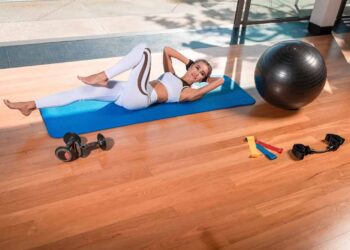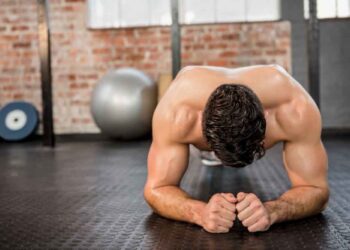Did you know that recovery after walking is crucial for enhancing muscle recovery, preventing injuries, and optimizing your post-walk routine for peak performance? Whether you’re a beginner or a seasoned walker, taking the time to recover properly can make a significant difference in your overall walking experience.
In this article, we will explore various recovery techniques for walkers, including post-walking recovery strategies, foot care, stretching exercises, hydration tips, cool-down routines, injury prevention, muscle recovery, and best recovery practices for walkers. By incorporating these methods into your routine, you can bounce back faster and continue to enjoy the benefits of walking.
Key Takeaways:
- Recovering after walking is essential for optimal muscle recovery and injury prevention.
- Getting enough sleep is crucial for muscle recovery and overall well-being.
- Proper nutrition, including protein and carbohydrates, plays a vital role in promoting muscle repair and replenishing energy stores.
- Incorporating stretching exercises and cool-down routines can enhance flexibility and reduce muscle soreness.
- Staying hydrated is essential for walkers to maintain performance and support muscle function.
Importance of Sleep for Muscle Recovery
When it comes to muscle recovery, sleep plays a crucial role. Quality sleep not only helps replenish energy levels but also supports the repair and growth of muscles. In fact, adequate sleep is essential for overall physical and mental well-being.
During sleep, the body goes through various processes that contribute to muscle recovery. It is during this time that the body produces human growth hormone (HGH), which aids in tissue repair and muscle development. Additionally, sleep allows the body to regulate hormone levels, including cortisol, which helps reduce inflammation and promotes muscle healing.
Moreover, sleep directly impacts the body’s immune function and metabolism. Research has shown that inadequate sleep can impair immune responses and hinder proper metabolic function, which can negatively affect muscle recovery. On the other hand, getting enough sleep enhances immune function, allowing the body to combat inflammation and promote healing.
To optimize muscle recovery, it is recommended to aim for 7-9 hours of quality sleep each night. Establishing a consistent sleep schedule and creating a sleep-friendly environment can help improve sleep quality. Avoiding caffeine and electronic devices before bed, maintaining a comfortable room temperature, and practicing relaxation techniques, such as deep breathing or meditation, can also promote better sleep.
Research suggests that not getting enough sleep can negatively impact performance and recovery after exercise.
In conclusion, sleep is an essential component of the muscle recovery process. It supports tissue repair, regulates hormone levels, enhances immune function, and promotes optimal metabolic function. By prioritizing sleep and ensuring adequate rest, individuals can optimize their muscle recovery and overall physical performance.
| Benefits of Sleep for Recovery |
|---|
| Promotes muscle repair and growth |
| Regulates hormone levels, including cortisol |
| Enhances immune function |
| Supports optimal metabolic function |
The Power of Nutrition for Recovery
Proper nutrition plays a vital role in muscle recovery. Whether you’re an avid walker or an occasional stroller, fueling your body with the right nutrients is key to maximizing your recovery and optimizing your walking performance.
Protein for muscle recovery: Consuming an adequate amount of protein before and after your walk is crucial for repairing and rebuilding muscle tissue. Protein provides the essential amino acids your body needs to promote muscle recovery and growth.
“Protein is essential for muscle repair and recovery. It helps to repair micro-tears in muscle fibers, supports the development of new muscle tissue, and promotes overall muscle growth.” – Dr. Sarah Johnson, Sports Nutritionist
Include a good source of protein at each meal, such as lean meats, fish, eggs, dairy products, or plant-based alternatives like tofu and legumes. Additionally, incorporating a protein-rich snack post-workout can further support muscle recovery.
Importance of carbohydrates for recovery: Carbohydrates are the primary source of fuel for your muscles during exercise. Consuming carbohydrates after your walk helps replenish glycogen stores, which are depleted during physical activity. This promotes faster muscle recovery and restores energy levels.
Opt for complex carbohydrates like whole grains, fruits, and vegetables, which provide sustained energy without causing a rapid spike in blood sugar levels.
Essential nutrients for muscle recovery: In addition to protein and carbohydrates, it is important to ensure an adequate intake of essential nutrients such as vitamins and minerals. These nutrients play various roles in muscle recovery, immune function, and overall health.
Include a variety of nutrient-dense foods in your diet, such as colorful fruits and vegetables, nuts and seeds, whole grains, and lean proteins. Consider consulting a registered dietitian or nutritionist to ensure you’re meeting your specific nutrient needs.
Tips for Post-Workout Nutrition
- Consume a protein-rich snack or meal within 30 minutes to an hour after your walk.
- Pair protein with carbohydrates to promote optimal muscle recovery. For example, enjoy a chicken breast with a side of roasted sweet potatoes.
- Stay hydrated by drinking water or electrolyte-rich beverages to support nutrient absorption and muscle function.
- Consider incorporating a protein shake or smoothie into your post-walk routine for a convenient and nutritious option.
By prioritizing proper nutrition after your walk, you can enhance your muscle recovery, reduce soreness, and improve your overall walking performance. Remember to listen to your body’s signals and adjust your nutrition plan according to your individual needs and preferences.
Stretching and Cool-Down Routines
Incorporating stretching exercises into your post-walk routine can greatly benefit walkers. Stretching exercises for walkers help improve flexibility, prevent muscle imbalances, and reduce the risk of injury. It’s important to engage in a combination of static and dynamic stretches to promote muscle recovery.
A cool-down routine is equally important after walking. Cool-down routines help lower the heart rate and gradually return the body to a resting state. By incorporating a cool-down routine, you can enhance your recovery process and help reduce muscle soreness.
Stretching and cool-down routines offer several benefits for recovery. They help increase blood flow to the muscles, which aids in the removal of waste products and reduces muscle fatigue. Additionally, stretching helps improve range of motion and maintains joint flexibility, reducing the risk of musculoskeletal injuries.
Remember, stretching and cool-down routines should be tailored to your individual needs and fitness level. It’s always a good idea to consult with a professional or a certified trainer to ensure you’re performing the exercises correctly and safely.
Sample Stretching Routine for Walkers
Here’s a sample stretching routine that you can incorporate into your post-walk recovery:
| Exercise | Description | Repetitions |
|---|---|---|
| Standing Quad Stretch | Stand tall and lift one foot up towards your glutes, holding onto your ankle. Keep your knee pointing downwards. Hold for 20-30 seconds. | 2-3 repetitions per leg |
| Hamstring Stretch | Sit on the edge of a bench or a step with one leg extended in front of you and the other foot resting on the ground. Lean forward from the hips and reach towards your toes. Hold for 20-30 seconds. | 2-3 repetitions per leg |
| Calf Stretch | Stand facing a wall with one foot in front of the other. Lean forward, placing your hands against the wall, and keep your back leg straight. Hold for 20-30 seconds. | 2-3 repetitions per leg |
| Triceps Stretch | Extend one arm overhead and bend the elbow, bringing your hand behind your head. Use your opposite hand to gently pull your elbow towards your head. Hold for 20-30 seconds. | 2-3 repetitions per arm |
Remember to perform these stretches in a controlled manner and avoid bouncing or jerking movements. If you experience any pain or discomfort, stop immediately and consult a healthcare professional.
Hydration Tips for Walkers
Staying hydrated is crucial for walkers, as proper hydration plays a vital role in performance and recovery. Dehydration can negatively impact your walk, leading to fatigue, muscle cramps, and decreased endurance. To ensure you stay hydrated while walking, here are some essential tips:
1. Drink Sufficient Water
One of the most important hydration tips for walkers is to drink enough water throughout the day. It is recommended to consume at least 2 liters of water per day, or more if you are active or walking in a warm climate. Carry a reusable water bottle with you and take regular sips during your walk to stay hydrated.
2. Replenish Electrolytes
In addition to water, replenishing electrolytes is essential for muscle function and hydration. Electrolytes such as magnesium, potassium, calcium, and sodium play a crucial role in maintaining proper muscle function and fluid balance within the body. You can replenish electrolytes through a balanced diet that includes foods rich in these minerals, such as bananas, oranges, leafy greens, nuts, and seeds.
3. Hydrating Beverages
While water is the best choice for hydration, there are other hydrating beverages that can contribute to your fluid intake. Milk, coconut water, and fruit smoothies are excellent options that not only provide hydration but also offer additional nutrients. Just be mindful of added sugars in some beverages and opt for natural and low-sugar options.
4. Monitor Liquid Intake
Pay attention to your liquid intake before, during, and after your walk. It’s essential to drink water before your walk to start off hydrated. During your walk, take regular sips to maintain hydration levels. After your walk, replenish any fluid lost through sweat by drinking water and hydrating beverages.
“Staying hydrated while walking is crucial for maintaining performance and promoting optimal recovery.” – Walking Expert
Proper hydration is vital for walkers to stay energized, prevent muscle cramps, and support overall physical well-being. Make hydration a priority in your walking routine, and you’ll experience improved performance and faster recovery.
| Hydration Tips for Walkers | Benefits |
|---|---|
| Drink sufficient water | Prevents dehydration, reduces fatigue, and supports muscle function |
| Replenish electrolytes | Maintains proper muscle function and fluid balance |
| Hydrating beverages | Provides hydration and additional nutrients |
| Monitor liquid intake | Maintains hydration levels before, during, and after walking |
Foot Care for Walkers
Proper foot care is of utmost importance for walkers to prevent injuries and promote recovery. By taking care of your feet, you can ensure a comfortable and enjoyable walking experience while reducing the risk of foot-related issues. Here are some essential foot care tips for walkers:
Choosing Proper Footwear
One of the key aspects of foot care for walkers is selecting the right footwear. It is essential to wear shoes that provide the necessary support and cushioning for walking. Look for shoes that have a comfortable fit, ample arch support, and appropriate shock absorption to minimize the impact on your feet. Investing in quality walking shoes can significantly reduce the risk of foot injuries.
Inspecting Your Feet Regularly
Regularly inspecting your feet is crucial for identifying any potential foot problems early on. Check for any signs of blisters, calluses, cuts, or other abnormalities. By catching these issues in their initial stages, you can take prompt action to prevent further complications.
Using Foot Care Products
Using foot care products can help maintain the health and well-being of your feet. Moisturizers can keep the skin on your feet soft and prevent dryness, while blister prevention aids, such as bandages or gel pads, can minimize friction and reduce the likelihood of blisters. It is advisable to use these products regularly, especially during long walks or hikes.
Preventing Foot Injuries
Prevention is always better than cure when it comes to foot injuries. By following a few simple precautions, walkers can significantly reduce the risk of foot-related issues. Make sure to warm up before your walk by performing gentle stretching exercises to prepare your muscles and joints. Gradually increase the intensity and duration of your walks to avoid overexertion. Additionally, listening to your body and taking breaks when needed can prevent overuse injuries.
“Taking care of your feet is crucial for walkers to minimize the risk of foot injuries and maintain optimal performance.”
By prioritizing foot care, walkers can enjoy their walks with reduced discomfort and lower the chances of injuries. By selecting appropriate footwear, inspecting their feet regularly, using foot care products, and practicing prevention techniques, walkers can maintain healthy and happy feet throughout their walking journey.

Preventing Injuries While Walking
Preventing injuries is crucial for walkers to ensure a smooth recovery process. It’s important to be aware of common walking injuries such as shin splints, plantar fasciitis, and stress fractures. By following some simple tips, you can avoid these injuries and continue to enjoy your walking routine.
Warm-Up and Gradual Progression
A proper warm-up is key to preparing your body for physical activity. Start with a brisk walk and gradually increase your pace. This allows your muscles to warm up, improves blood circulation, and reduces the risk of injury. Additionally, gradually increase the duration and intensity of your walks over time to prevent overexertion.
Appropriate Footwear and Good Posture
Investing in proper walking shoes is essential for injury prevention. Choose footwear that provides adequate support, cushioning, and stability for your feet. Additionally, maintaining good posture while walking helps distribute weight evenly and reduces strain on your joints. Engage your core, keep your shoulders relaxed, and maintain a natural stride.
Listen to Your Body
Pay attention to any discomfort or pain during your walks. Pushing through pain can lead to further injury. If you experience persistent pain, it’s important to rest and seek medical advice if necessary. Your body knows best, so listen to its signals and adjust your walking routine accordingly.
Strength and Flexibility Exercises
Incorporating strength and flexibility exercises into your routine can help strengthen muscles, improve stability, and reduce the risk of injury. Focus on exercises that target the muscles used during walking, such as calf raises, lunges, and hip stretches. A well-rounded exercise regimen can enhance your walking performance and prevent common injuries.
Remember, injury prevention is essential for walkers to maintain a healthy and enjoyable walking routine. By following these simple tips and taking care of your body, you can minimize the risk of injuries and ensure a smooth recovery process.
Conclusion
Optimizing your post-walk routine is essential for walkers looking to enhance muscle recovery, prevent injuries, and achieve optimal performance. By incorporating a variety of recovery techniques, you can ensure that your body bounces back faster and remains in top shape.
First and foremost, getting enough sleep is crucial for muscle recovery. Aim for 7-9 hours of quality sleep each night to support your body’s healing processes and promote overall well-being.
In addition, paying attention to your nutrition is key. Ensure you consume adequate protein and carbohydrates to provide the nutrients your muscles need for repair and replenishment.
Don’t forget about the importance of stretching exercises and cool-down routines in your post-walk routine. These practices help improve flexibility, prevent muscle imbalances, and reduce the risk of injury.
Stay hydrated throughout your walks to support muscle function and recovery. Carry a water bottle and replenish electrolytes through balanced meals or hydrating beverages.
Lastly, don’t neglect foot care and injury prevention. Invest in proper footwear that provides support and cushioning, inspect your feet regularly for any issues, and listen to your body’s signals to avoid overexertion.
By following these recovery techniques and incorporating them into your post-walk routine, you can optimize your performance, minimize the risk of injuries, and continue enjoying the benefits of walking for fitness and well-being.











